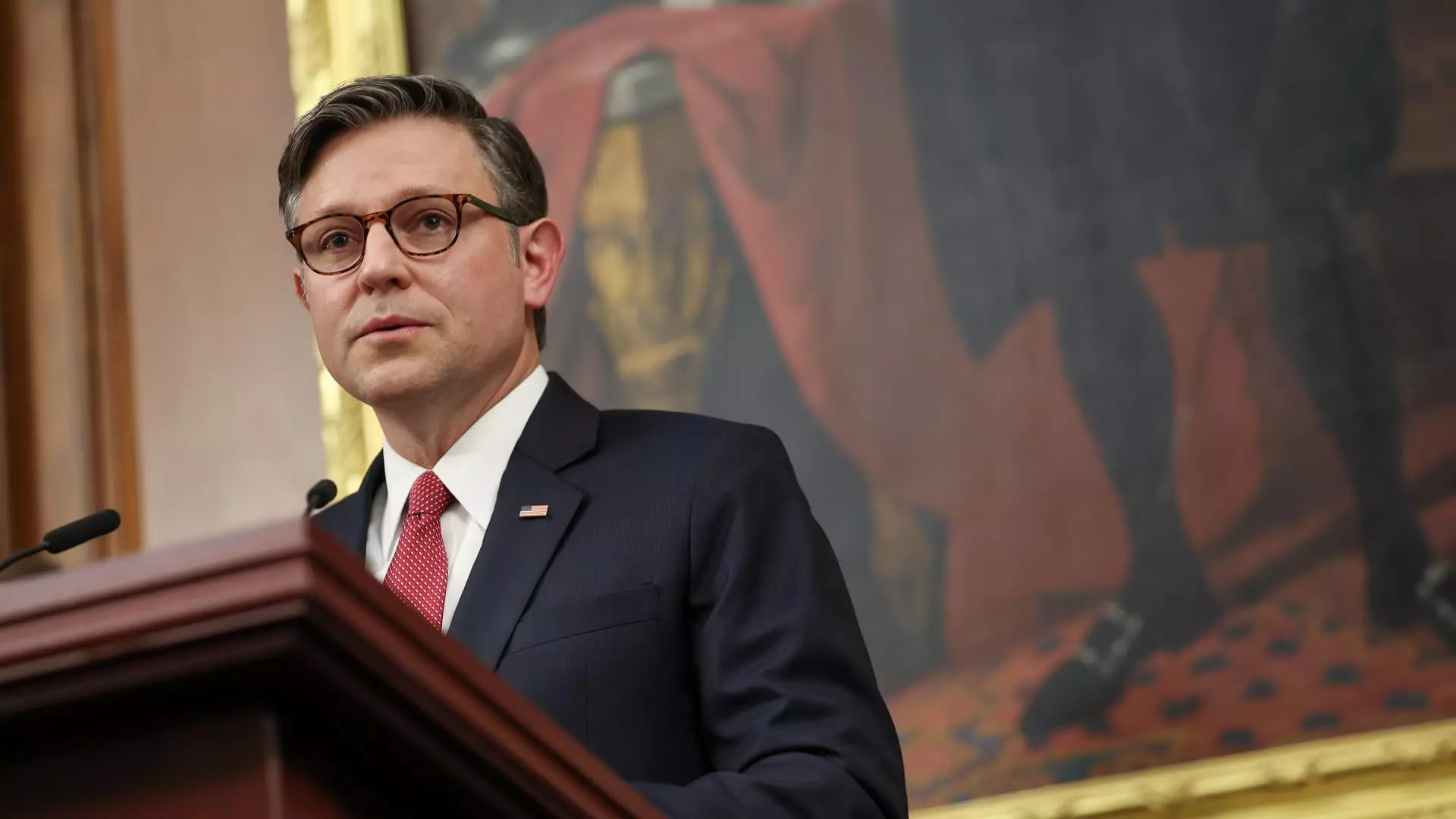Recent statements from House Speaker Mike Johnson invoke serious concerns about the governance of military engagement and the balance of power among the branches of the federal government. In his defense of President Trump’s unilateral military actions in Iran, Johnson contends that the War Powers Act is unconstitutional. This assertion not only misrepresents the foundations of American democracy but also recklessly undermines the critical principle of checks and balances that ensures no single branch can wield unchecked power.
The War Powers Act, enacted in 1973, was born out of the devastation and miscalculations of the Vietnam War, intended to curtail presidential overreach in military actions. Many scholars consider it vital for preserving democratic oversight in matters of war. Yet, Johnson’s dismissal of this law raises profound questions about whether the current leadership values the lessons of history over political expediency. By espousing a notion that grants the president unlimited latitude in military decisions, we teeter on the brink of normalizing a culture of unilateral war-making that can drag the nation into conflicts without congressional consent or public accountability.
Article II Misinterpretation
Johnson claims that the President’s powers under Article II of the Constitution validate Trump’s military strikes in Iran. This interpretation, however, conveniently overlooks the article’s broader context; it is indeed true that the President is the commander-in-chief, but this does not exempt him from congressional oversight—especially regarding the declaration of war. The framers of the Constitution understood the necessity of collaborative decisions in warfare, a sentiment echoed in the very absence of a formal declaration by Congress since World War II. By ignoring these nuances, Johnson sets a dangerous precedent where military action becomes the purview of the executive, leaving Congress and, by extension, the electorate, powerless to respond.
Moreover, the dysfunction within Congress complicates the exercise of this power. The reluctance of lawmakers to vocally challenge the executive branch is emblematic of a larger trend in which political parties prioritize loyalty over principles. In a time when the specters of conflict loom large, the necessity for congressional resistance to military overreach becomes an imperative that transcends party lines. The bipartisan efforts seen in resolutions like that from Rep. Thomas Massie and Rep. Ro Khanna represent the essential counterbalance that must persist if we are to maintain our democratic integrity.
What’s at Stake?
As Johnson defends the President’s military choices, we must consider the ramifications of this stance in the broader geopolitical landscape. The potential for destabilization in the Middle East not only puts American lives at risk but can also drag future generations into unpredictable conflicts. The lack of oversight allows for hasty decisions that might escalate without accountability. Every military strike has consequences, often resulting in civilian casualties and a resurgence of anti-American sentiment, which could further endanger U.S. interests abroad.
Beyond the immediate risks of conflict, there’s an insidious normalization of a political culture where preemptive strikes become standard operating procedure rather than a last resort. If Congress continues to abdicate its responsibility in this arena, citizens may soon find themselves disconnected from the decision-making processes surrounding war, all while the implications of such decisions disproportionately affect marginalized groups within society. This should compel all political actors to reconsider their stance on war powers.
The Perils of Partisan Dynamics
It’s alarming to observe how partisan politics can overrun fundamental democratic principles. Johnson’s accusations targeting an individual like Massie illustrate how political dissent is vilified, complicating genuine discourse on military actions. The reality that even members of one’s own party can be derided openly for advocating restraint highlights a concerning environment that stifles debate. The true test of leadership lies not in silencing dissenters but in fostering an informed discussion about the use of military force.
In our current political climate, where emotions often overshadow reason, the need for conscience in governance becomes ever more pronounced. Upholding the integrity of the War Powers Act isn’t merely about seeking to bind the President but establishing a framework that ensures accountability and reassurance to the American public that their representatives are indeed involved in one of the gravest responsibilities of government: the decision to go to war. A vibrant democracy cannot exist where military force is wielded without an informed and engaged citizenry guiding the hands of their leaders.

